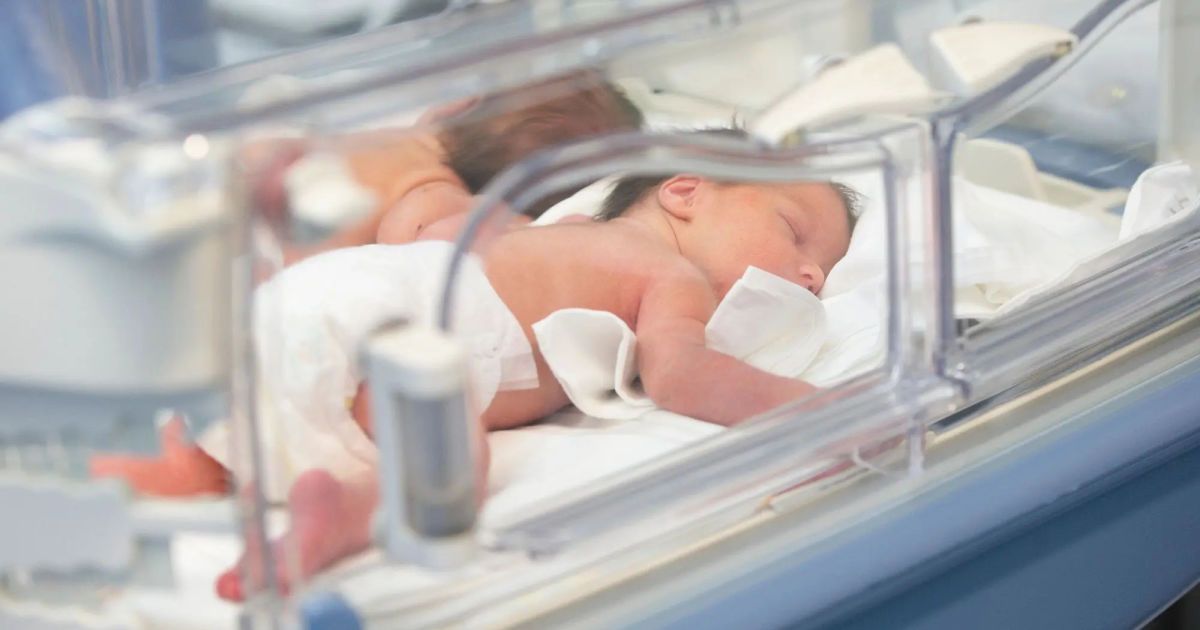Japanese scientists claim that they are on the verge of growing human embryos in the laboratory by incubating eggs and sperm in the artificial womb. According to Professor Katsuhiko Hayashi, an expert in stem cell biology at Kyushu University, "artificial mothers" could be available in five years.
It is reported by DailyMail.
In particular, his team used this synthetic surrogacy method to create mice from two rodents — as a preliminary proof of concept for the technology's implications for same-sex parents.
According to a new study published in March in the journal Nature, the team turned skin cells from male mice into pluripotent stem cells that have the potential to develop into different cell or tissue types, like "cell werewolfs."
The researchers then grew these cells and treated them with a drug that converted male rodent stem cells into female cells, thus producing functional eggs.
Meanwhile, the fertilization of these eggs and the implantation of this baby drawing to female mice led to the artificial conception of male mice.
This photo shows a fertile adult male mouse (right) with his offspring and another adult mouse in Osaka, Japan, in September 2021. Katsuhiko Hayashi via AP
Although only 1% of the embryos — 7 out of 630 — grew into live mice, the researchers believed that this experiment potentially had important implications for human reproduction.
"It's a very smart strategy," said Diana Laird, a stem cell and reproductive system expert at the University of California, San Francisco who was not involved in the study. "This is an important step in both stem cell research and reproductive biology."
Indeed, theoretically, this process can be replicated in humans by infusing embryos generated by pluripotent stem cells into a woman's womb.
However, although scientists were able to construct rudimentary human eggs and sperm in the lab — a process known as gametogenesis in vitro — they were unable to create real embryos.
In other words, this method of "artificially creating children" is still in the "embryonic stage".
Dr. Hayashi estimates that it will take approximately five years to replicate egg-like cell production in humans, and 10-20 years of testing to make sure this artificial reproductive method is safe for use in clinics.
Japanese scientists led by Professor Katsuhiko Hayashi (pictured) claim that they are on the verge of growing human embryos in the laboratory by incubating eggs and sperm in an artificial womb. Kyushu University
One of the problems is mutations and errors that can occur in vitro before using stem cells to produce eggs.
"I don't know if they'll be replicable," a stem cell expert told the Guardian. "Purely in terms of technology, it will be possible [for people] in 10 years."
If that works, the technology could be a significant help for those struggling with infertility, a disease that affects 1 in 6 worldwide, according to the World Health Organization.
Other beneficiaries are same-sex couples, single parents and, in some cases, persons replacing them.
"This study, conducted on mice, could become a template that will allow more people to have biological children while circumventing the ethical and legal concerns of donor eggs," Laird and her colleague Jonathan Baerle wrote in commentary on the aforementioned Nature study.
Of course, the idea of "growing embryos in a lab" is not without legal and ethical caveats, in particular regarding the fear that people will be able to create "designer" children by mixing only the best "baby formulas", as stated in the DailyMail.
Dr. Hayashi estimates that it will take about five years to reproduce egg-like cell production in humans. Kyushu University
There is also a fear that people may be forced to have a child against their will using a lock of their hair or a piece of skin.
Reference:Pluripotent stem cells are a type of stem cells obtained artificially in laboratory conditions from mature, differentiated cells of the body of mammals, in particular humans. Skin fibroblasts are used to induce such cells.
According to research published in Rambam Maimonides Med J. (29.04.2020), "pluripotent stem cells are a good direction for research because their use poses no ethical concern, in addition, some human studies have shown good results."
The only risk in the use of pluripotent stem cells is tumorigenesis (the process by which cells undergo changes that cause uncontrolled cell proliferation), however, this risk can be avoided "by isolating cells or cell lines that have undergone at least some differentiation."
Read also:
- Egg can independently choose sperm using chemical signals - scientists
- A woman with two queens gave birth to twins (photo)
- Breakthrough in medicine: an unborn twin was removed from the brain of a one-year-old girl
